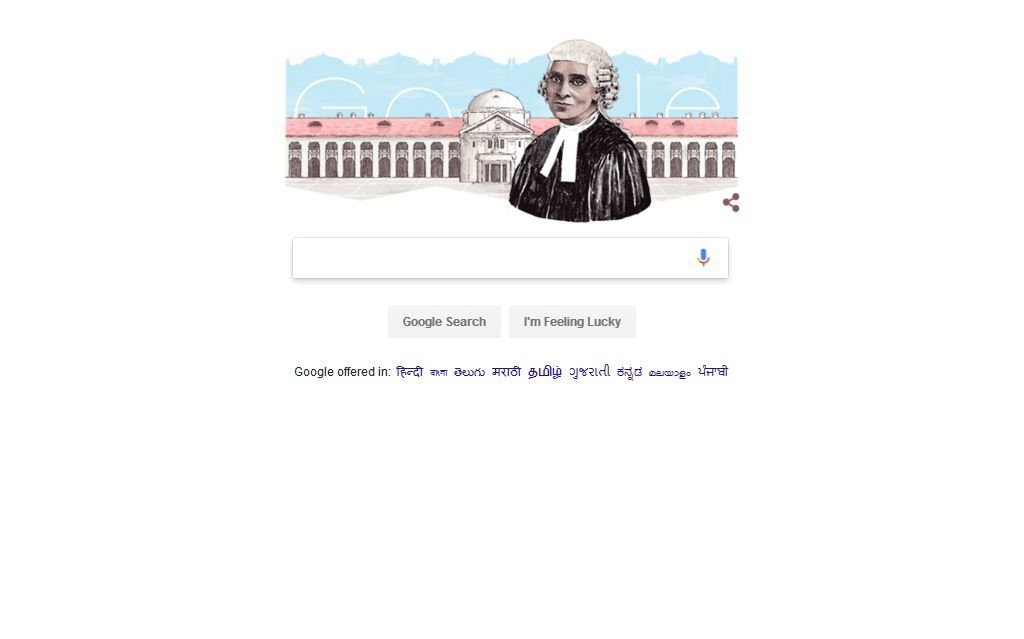Google Doodle Honors India’s First Woman Lawyer Cornelia Sorabji
MUMBAI — Google Nov. 15 honored Cornelia Sorabji, India’s first woman lawyer, on her 151st birth anniversary with a doodle.
Sorabji was born to Parsi priest Sorabji Karsedji and Francina Ford Nov. 15, 1866, in Nashik’s Deolali in Maharashtra – then Bombay Presidency.
 She was one of nine siblings, but Sorabji went on to carve her own niche in the country’s legal history with several firsts to her credit.
She was one of nine siblings, but Sorabji went on to carve her own niche in the country’s legal history with several firsts to her credit.
Google saluted her many achievements – the first woman graduate of University of Bombay, first woman lawyer of India who practiced at the Allahabad High Court, first woman to ever get admission to a British university – Oxford – and the first female to practice law both in India and Britain at the height of the Indian freedom struggle.
The doodle was designed by Jasjyot Singh Hans and shows Sorabji standing outside the Allahabad High Court, where she launched her practice, attired in a lawyer’s robe comprising a black gown, a white band and even a white wig.
From Nashik, she shifted and spent part of her childhood in Belgaum and Poona, now Karnataka and Pune respectively, and studied in the Deccan College, graduating with high rankings from the University of Bombay in the mid-1880s.
She briefly worked at a men’s college in Gujarat as a teacher and in 1888 sought assistance from the National Indian Association, U.K., to pursue higher education.
Sorabji received support from many Britons, including Arthur Hobhouse and his wife Mary, Florence Nightingale, Sir William Wedderburn and others.
She traveled to England in 1889 and lived with the Hobhouses. After clearing many obstacles, she became the first woman to join the Somerset Ville, Oxford, for a Bachelor in Civil Laws degree in 1892, with special permission.
Upon returning to India in 1894, she plunged into social service and legal advisory work, especially for “purda-nashin” women from wealthy or royal families, who had no means to defend their wealth and properties. Sorabji secured special permission to file pleas on their behalf, yet could not represent them in the courts.
In 1897, she graduated with an L.L.B. from the University of Bombay and passed the government pleader’s exam from the Allahabad High Court in 1899, but was only recognized as a barrister after the laws barring women from the legal fraternity were finally changed in 1923.
Overcoming all biases and discrimination, she continued to work in different legal capacities in Maharashtra, Allahabad, Bihar, Bengal, Orissa and Assam for over two decades.
Between 1900 to the 1930s, she wrote around a dozen books, including two autobiographical works; traveled extensively in India and the U.S.; helped her mother to found several girls’ schools in and around Poona; and penned articles for various Indian and British periodicals.
After a trailblazing career, Sorabji finally retired as a High Court lawyer in 1929 and settled in London – visiting India only during winters – where she passed away July 6, 1954.
Nearly 58 years after her death, a statue of her bust was unveiled at the historic Lincoln’s Inn in London.





